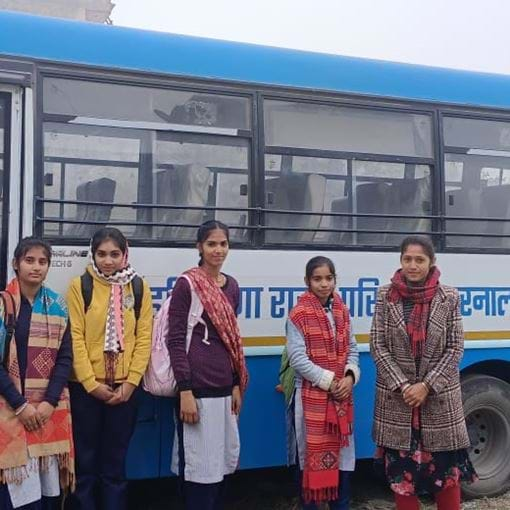Empowering adolescent girls through technology
Adolescence in India can be challenging for girls, with social norms limiting their education and career choices and exposing them to practices such as early marriage, violence, and trafficking. Overcoming these challenges is crucial; it is estimated that increasing women's participation in the labour force could boost India's GDP by 27%

Philip Jansen
“Our partnership with the British Asian Trust exemplifies BT Group’s purpose, ‘we connect for good’. One of our Manifesto goals is to use technology to help create a more inclusive society and through this partnership we have so far enabled more than 1 million girls in India to gain essential digital and life skills, creating a future workforce and legacy of success we can all be proud of.”

The problem
Despite tremendous progress in girls’ education in science, engineering, technology, and mathematics (STEM), girls struggle to enter, stay, and thrive in the STEM workforce. Only 14% of scientists, engineers, and technologists in research development institutions and universities are women. Gender biases and entrenched social norms have a big role to play in this. There also exists a gendered digital divide that robs them of the opportunity to access online knowledge, skills, and financial tools.
Our solution
Since 2019, BT Group and the British Asian Trust have partnered to uplift over 1 million adolescents in India, primarily girls, through digital literacy, STEM education, life skills training, employment opportunities, and gender empowerment, enabling them to thrive.
Our partnership supports India’s policies on skilling, education, and digital literacy.
BT Group’s employees played an important role in this initiative, volunteering their time and skills. Their involvement has helped young girls from vulnerable and low-income communities develop soft and digital skills, realise the importance of technology, and dare to dream of a better life.
Our programme
We are working with seven local partners across high-need communities in Delhi, Mumbai, Kolkata, Bengaluru and select cities and towns in Haryana to:
- bridge the gender gap in education, digital skills, and STEM
- support employment of young women through skilling, entrepreneurship, and placement support
- change community and social norms around gender and create safe spaces for adolescent girls to engage, learn and grow

Our current initiatives are
- Mentoring for career growth and digital mentoring with the Mentor to Go app: With Mentor Together, we are enabling career growth and digital skilling of aspiring young women through digital mentoring.
- Taaron ki Toli (Group of Stars) community leaders to challenge gender norms: With Breakthrough India, we are mobilising people, especially girls and women in Haryana to become leaders of change in communities, promote girls’ education, and tackle gender-based discrimination and violence.
- Digital, entrepreneurial and life skills through sport and technology-learning programmes: Our programme with Going to School is working with the governments of Maharashtra and Karnataka to help 180,000 adolescent girls in government schools develop these essential skills.
- Nurturing interest in STEM: With our support, Katha Lab School has been helping adolescent girls develop interest in STEM education through robotics and IT training.
- Livelihoods, entrepreneurship, and job creation in Haryana: Our partner ETASHA Society is helping youth in government-run Industrial Training Institutes (ITI) develop an entrepreneurial mindset.
- Championing gender equality and awareness through students and teachers: With IT for Change in Bengaluru, our programme Hosa Heije Hosa Dishe (New Step New Direction) is setting up Kishori (adolescent girl) clubs and training teachers in government schools to share perspectives on gender equality and life skills.
- Achieving grade-level learning levels and reducing dropout rates with edtech: Our partner Transform Schools has launched the Accelerated Learning through Tech (ALT), an edtech learning platform that aims to improve learning outcomes and mitigate dropouts in West Bengal.
Our seven local partners













